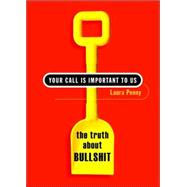
| Chapter One YOU'RE SOAKING IN IT | 1 | (19) | |
| Chapter Two PAINTING THE LAWN GREEN | 20 | (22) | |
|
|||
| Chapter Three IF YOU'VE GOT THE MONEY, HONEY | 42 | (25) | |
|
|||
| Chapter Four WORLD CO., INC. | 67 | (25) | |
|
|||
| Chapter Five DON'T WORRY ABOUT THE GOVERNMENT | 92 | (21) | |
|
|||
| Chapter Six PILLZAPOPPIN'! | 113 | (27) | |
|
|||
| Chapter Seven THE BEST POLICY | 140 | (23) | |
|
|||
| Chapter Eight MALLS, SPRAWLS, AND TELEPHONE CALLS | 163 | (23) | |
|
|||
| Chapter Nine SLEAZE BITES AND FLUFF CRAWLS | 186 | (24) | |
|
|||
| Chapter Ten THINK OF THE CHILDREN! | 210 | (14) | |
|
|||
| NOTES | 224 | (13) | |
| INDEX | 237 |
The New copy of this book will include any supplemental materials advertised. Please check the title of the book to determine if it should include any access cards, study guides, lab manuals, CDs, etc.
The Used, Rental and eBook copies of this book are not guaranteed to include any supplemental materials. Typically, only the book itself is included. This is true even if the title states it includes any access cards, study guides, lab manuals, CDs, etc.
Excerpted from Your Call Is Important to Us: The Truth about Bullshit by Laura Penny
All rights reserved by the original copyright owners. Excerpts are provided for display purposes only and may not be reproduced, reprinted or distributed without the written permission of the publisher.